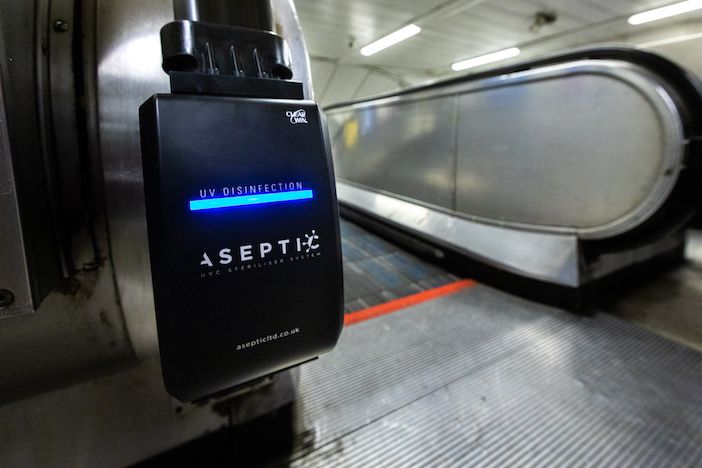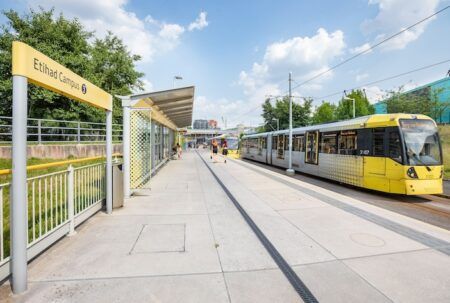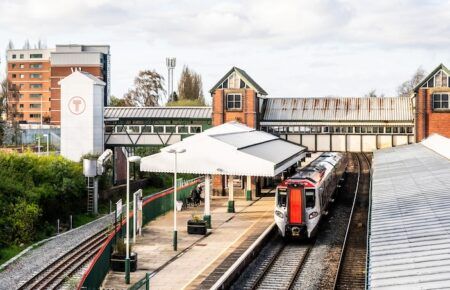More than 200 UV light sanitising devices are being installed on 110 escalators on the London Underground network. It follows a successful trial which found that they improve sanitisation levels on escalator handrails by at least 50%
The six-week trial took place earlier this year using ultraviolet (UV) light to clean the handrails on escalators at Heathrow T123 Tube station. Now, the sanitising devices are now being rolled out, meaning almost a quarter of all escalators on the network will be fitted with the devices.
Designed to supplement Transport for London’s (TfL’s) existing extensive anti-viral cleaning regime, they are connected to the escalator handrail and use its motion to power a UV bulb that breaks down contamination to sanitise the surface continuously.
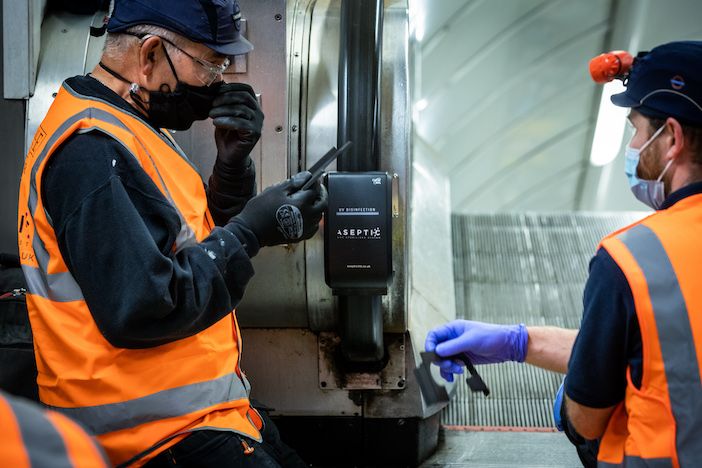
Devices have already been fitted on six escalators at King’s Cross St Pancras Underground Station and in the coming weeks will be installed at some of the busiest stations on the network including Bond Street, Charing Cross, Green Park, London Bridge, Paddington, Tottenham Court Road, Victoria and Waterloo.
While UV light has been proven to de-activate previous strains of coronavirus, Covid-19 is still too new for similar clinical trials to have concluded in the UK. However, the UV-light sanitising devices were shown in TfL’s trial to improve the cleanliness of escalator handrail surfaces by at least 50%.
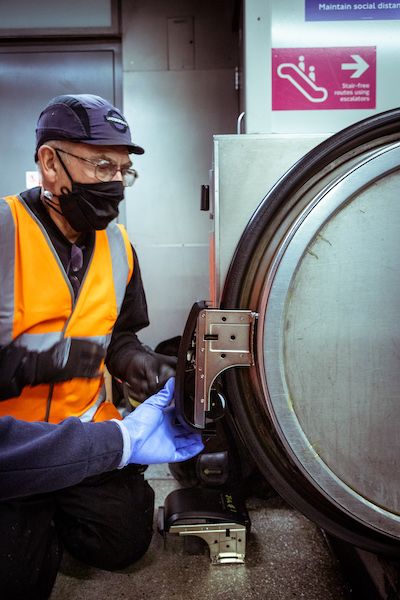 “We already have a rigorous cleaning regime across all of our stations but are committed to doing everything we can to ensure that the transport network is as clean as it possibly can be,” says Esther Sharples, director of asset operations at London Underground. “Customer injuries on escalators account for around half of all injuries on the Tube network and, during the pandemic, we have found that some customers are avoiding holding the handrails. We hope that the installation of these new devices, along with the provision of Dettol hand sanitiser across the network, will rebuild customer confidence.”
“We already have a rigorous cleaning regime across all of our stations but are committed to doing everything we can to ensure that the transport network is as clean as it possibly can be,” says Esther Sharples, director of asset operations at London Underground. “Customer injuries on escalators account for around half of all injuries on the Tube network and, during the pandemic, we have found that some customers are avoiding holding the handrails. We hope that the installation of these new devices, along with the provision of Dettol hand sanitiser across the network, will rebuild customer confidence.”
TfL has regularly tested for coronavirus on the transport network with no evidence of the virus found to date and, last month, a new testing plan with Imperial College London started. This work involves independent monthly air and surface sampling, on both the Tube and buses, for a period of four months. The need for ongoing sampling will be reviewed at the end of the period. The results from the first round of collaborative sampling in September have already been received and were, again, all negative for the presence of Covid-19.
TfL’s extensive anti-viral cleaning regime across the transport network includes using hospital-grade cleaning substances that kill viruses and bacteria on contact and provide ongoing disinfection. More than 1,000 hand sanitiser points have been installed across the network for everyone to use and firm action is being taken against the minority of customers who refuse to wear a face covering without an exemption.
With the capital currently in Tier 2 of the government’s Covid alert levels, TfL has set out some simple tips to help everyone stay safe as they travel. These include walking or cycling where possible and, if you need to travel, to plan ahead for quiet times and routes. Everyone must continue to take the simple steps of good hand hygiene, wearing a face covering and social distancing wherever possible. TfL is also advising customers to stay three steps apart on escalators and not pass others at all times.
TfL is continuing to run a full planned service, which, along with widespread social distancing signage, makes social distancing easier on the network.


